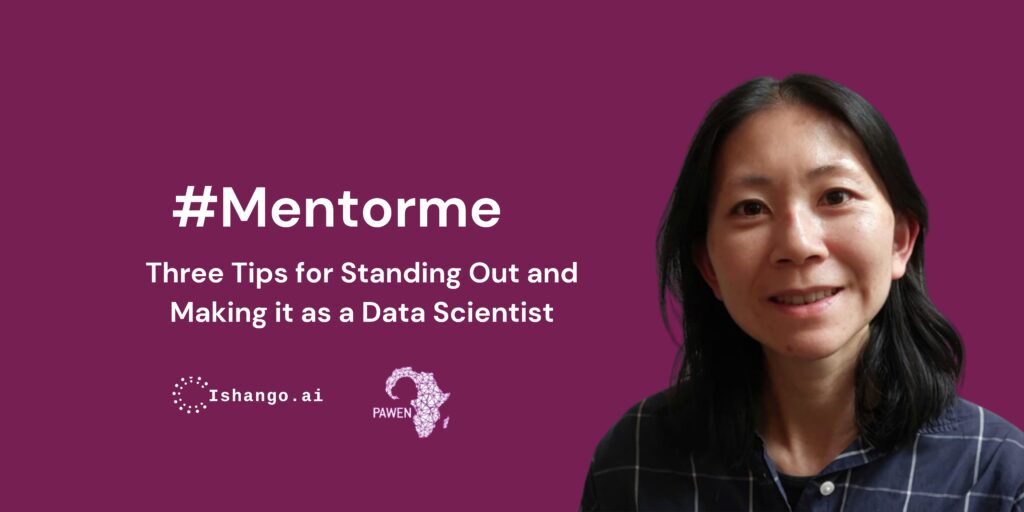Three Tips for Standing Out and Making it as a Data Scientist

During the recent Mentorme webinar organised by our partner TechUp Africa, Ishango.ai mentor Chih-Chun Chen shared her advice for upcoming data scientists. She spoke about three important aspects of making it in the data science field; what a data science portfolio should include, navigating the job market as an entry-level data scientist in a time of tech layoffs, and dealing with imposter syndrome.
Build a portfolio that showcases your skills
There is no universal answer to what projects should be included in a data science portfolio. However, the first question you should ask yourself is what kind of data scientist you want to be and what kind of image you want to project. This will inform the look and content of your portfolio. Your projects should center around your area of specialisation and demonstrate a depth of knowledge in that area. Your projects should also demonstrate your thoroughness in problem-solving. Recruiters are looking for candidates who have studied a model and have tried to solve a specific problem rather than simply scratching the surface of various fields.
Focus on building both your technical and soft skills
Navigating the job market as a data scientist can be challenging, especially during a time of layoffs in the industry. To increase your chances of success, there are a few key steps you can take. Firstly, building a great portfolio and tailoring your application to each job will help you stand out to potential employers. Secondly, building soft skills, such as communication and collaboration, is critical to differentiating yourself in a competitive job market. Therefore, in addition to your technical skills, focus on honing your soft skills to present a well-rounded profile to potential employers.
Recognise your strengths and embrace a growth mindset to overcome imposter syndrome
Doubting your abilities and feeling like you don’t belong, a.k.a. “imposter syndrome,” is very common in the tech industry. It can be easy to feel intimidated as there is always so much more to know and learn. However, it is important to recognise that imposter syndrome is a feeling, not a fact. You can deal with it by focusing on your strengths, seeking support in areas where you are weak, and, most importantly, not comparing yourself to others. By recognising that everyone has their own path and embracing a growth mindset, you overcome imposter syndrome and thrive as a data scientist.
